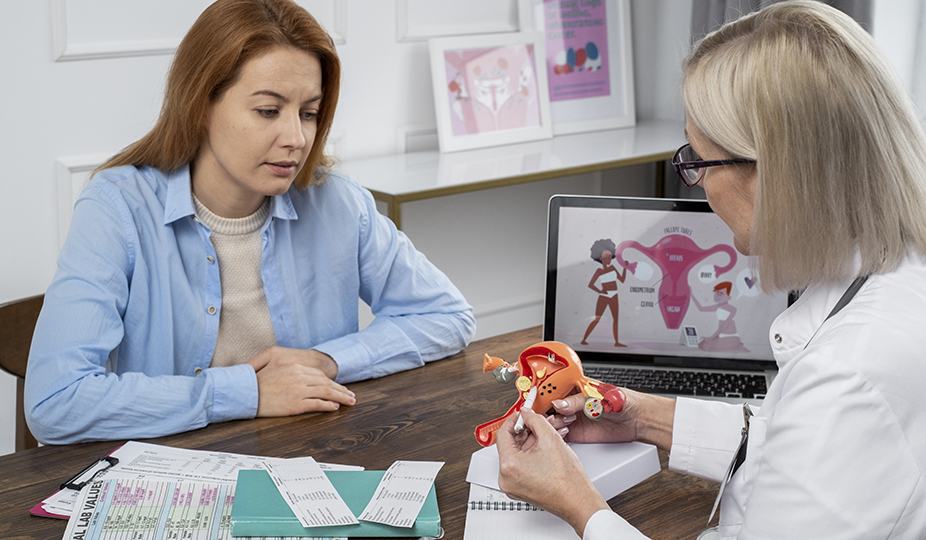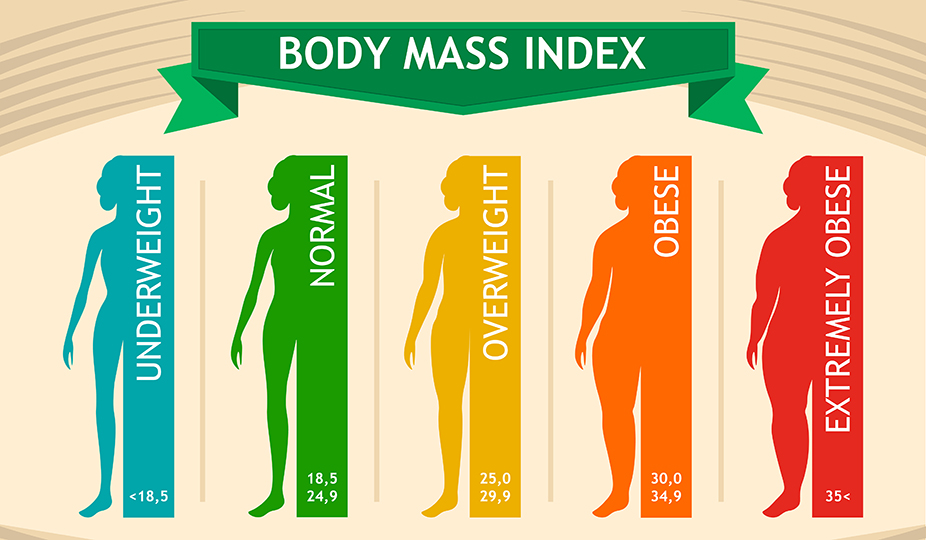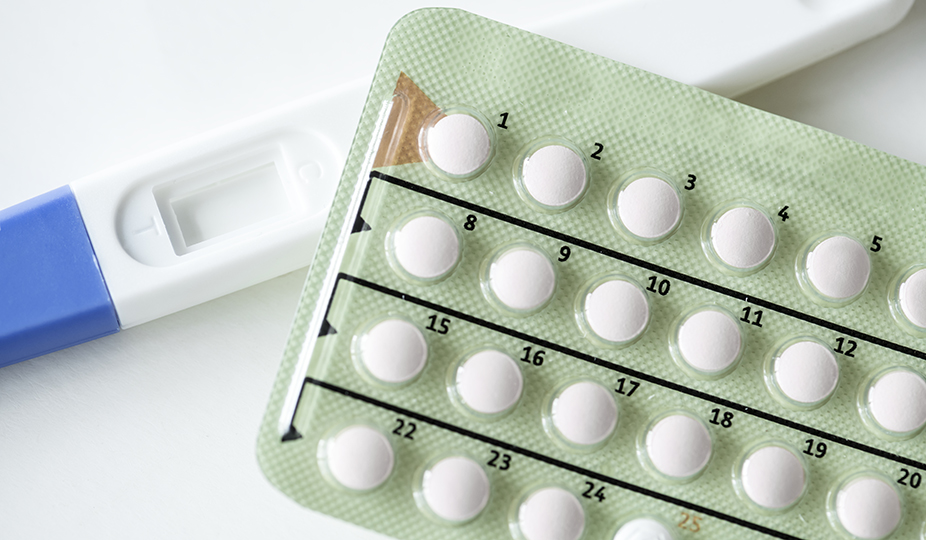AMH (Anti Mullerian Hormone) and Why You Need to Monitor It
AMH is an abbreviation that stands for Anti-Mullerian Hormone. It is an accurate marker of the women’s ovarian reserve. This hormone is produced by the ovarian follicles and shows the reproductive potential of a woman. In addition to the AMH indicator, the specialist pays special attention to other factors. Those are the patient’s age and the number of antral follicles on the 2nd-3rd day of the menstrual cycle. In the aggregate of this data, the doctor evaluates the woman’s ovarian reserve and predicts the chances of pregnancy.

How AMH Works
During puberty, follicles begin to mature in the ovaries of a teenage girl. These follicles, as they develop, secrete an anti-Mullerian hormone, which circulates in the blood. Anti-Müllerian hormone plays an important role in the early stages of follicle development, which contain and support eggs until fertilization. The more ovarian follicles a woman has, the more anti-Müllerian hormone her ovaries can produce.
Therefore, measuring the level of anti-Müllerian hormone in the blood allows you to assess how many potential eggs a woman has left. It is called an ovarian reserve. The more eggs one has, the higher the level of anti-Müllerian hormone is.
The anti-Mullerian hormone test is often used to check the ability of the ovaries to produce eggs. If a woman has a high ovarian reserve, she is more likely to become pregnant. If the ovarian reserve is low, a woman may have problems getting pregnant.
AMH Levels and Age
Doctors recommend monitoring the AMH levels from the age of 12. And if, after reaching the age of 14, its rate decreases, this serves as the basis for egg freezing. Perhaps this position is excessive, but clearly, this applies to women after 35 years old who are planning a pregnancy. They should control the hormone level and consider that if it decreases to AMH<1, it is a sign of approaching menopause.
How Can You Detect the AMH Decrease?
Unfortunately, it is impossible to recognize this without making the appropriate blood tests. The production of AMH is not related to the level of other hormones. In addition, this hormone is not affected by diet, lifestyle, and any other external factors.
Does a Blood Test Show an AMH Level Accurately?
Yes, an AMH blood test gives accurate information about your ovarian reserve. This blood test is simple and can be done any day of your menstrual cycle. But pay attention to such a factor as the reliability of a single study of the AMH level. There is a possibility of incorrectly performed analysis. If a study once showed a low (or vice versa – high) AMH indicator, this is not an unequivocal confirmation of female fertility potential. When there is a discrepancy between the factors determining the ovarian reserve, we adhere to the need to retake the analysis.
What Should Be Done If the Analysis Showed a Low Level of AMH?
The indication of reduced AMH should guide early pregnancy planning and consultation with a gynecologist-reproductologist. Perhaps in your case, it will be possible to limit yourself to cryopreservation of oocytes to preserve them for the future or plan a pregnancy in the present.

Preparation for the AMH Blood Test
Blood must be taken strictly on an empty stomach in the morning. You should not eat anything for at least 8 hours.
Avoid overeating the day before.
Eliminate alcohol intake a day before the analysis.
Do not smoke for at least 1 hour before the analysis.
Exclude physical (sports training) and emotional overload before the study.
When studying the concentration of anti-Müllerian hormone in dynamics, it is recommended to conduct repeated studies under the same conditions (and in the same laboratory).
Reference Values
The values considered normal for Anti-Müllerian hormone, depending on gender and age, are presented in the table.
| Sex | Age | Anti-Müllerian hormone level, ng/ml |
|---|---|---|
| Men | ≤ 60 days | 15,11–266,59 |
| puberty | 0,43–144,48 | |
| reproductive age | 0,73–16,05 | |
| Women | ≤ 60 days | < 3,39 |
| 18–25 y.o | 0,96–13,34 | |
| 26–40 y.o | 0,03–7,37 | |
| 41–45 y.o | < 3,27 | |
| ≥ 46 y.o | < 1,15 |
High and Low AMH Reasons
High levels of anti-Müllerian hormone in women can be observed with the development of polycystic ovary syndrome (PCOS). PCOS is a hormonal disorder in which cysts (formations in the form of a bubble with liquid) develop in the ovary from immature eggs, accompanied by a violation of the hormonal balance in the body.
Anti-Mullerian hormone testing is done to evaluate the quality of ovarian cancer treatment.
Causes of an increase in the level of anti-Müllerian hormone in the blood
Among women:
- infertility;
- polycystic ovarian syndrome (PCOS);
- ovarian cancer.
For men:
- Delayed sexual development;
- antiandrogen therapy (taking drugs that affect male sex hormones);
- defects in androgen synthesis;
- resistance (immunity) to androgens;

Causes of a decrease in anti-Mullerian hormone in the blood
Among women:
- Age-related decline in ovarian reserve;
- ovarian insufficiency (including after chemotherapy);
- obesity.
For men:
- during puberty – premature sexual development;
- increasing of androgens level;
- anorchism (developmental anomaly manifested by the complete absence of testicles);
- non-obstructive azoospermia (absence of spermatozoa in the semen).
Is AMH a Reliable Marker of Pregnancy during IVF?
Partially. The number of oocytes is directly related to the woman’s age. The woman’s age is the main factor in reproductive success, including the frequency of pregnancy in the ART cycle. However, do not forget about the quality of the eggs! Suppose a low level of AMH combines with fertility issues. In that case, you need to think not about increasing the amount of this hormone in the blood but about ovarian stimulation to produce healthy eggs.
Therefore, the determination of anti-Müllerian hormone is an important test for women planning an IVF procedure. Anti-Müllerian hormone levels allow the doctor to determine what doses of hormones to use during IVF.
Can Contraceptives (COCs) Preserve Follicular Reserve and Increase AMH Levels?

Combined oral contraceptives (COC) cannot affect the follicular reserve. It is a common misconception among women who take COCs, not only for protection but also for oocyte ‘preservation.’
How to Raise the AMH Level?
It is impossible to increase the level of AMH by forced means. Remember that the value of AMH usually changes downward during a woman’s life. A low hormone value should be an incentive to act (if you plan ever to have children).
Does AMH Predict Menopause?
The AMH indicator is considered sufficiently objective not only in assessing the reproductive potential of a woman but also in predicting the onset of menopause. Moreover, among other hormonal markers, a decrease in AMH is the most reliable evidence of approaching menopause.
How Do You Work with Patients with Low AMH?
Unfortunately, when AMH is less than 1, it is almost impossible to opt for IVF according to compulsory medical insurance. In this case, women are forced to do IVF for a fee. We carry out several manipulations to increase the chances of successful IVF in women with low AMH, and we also use special stimulation protocols. Alternatively, we can suggest the intended parents choose an egg donor from our free database. Therefore, women with low AMH levels can get pregnant and give birth to healthy babies.
